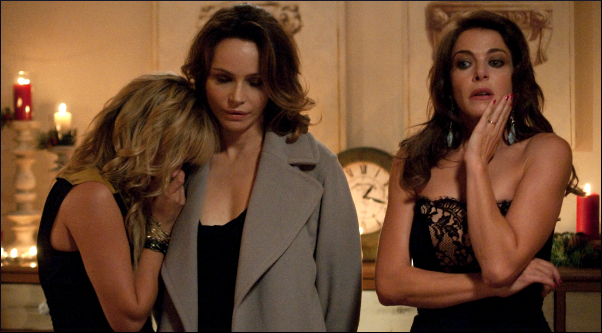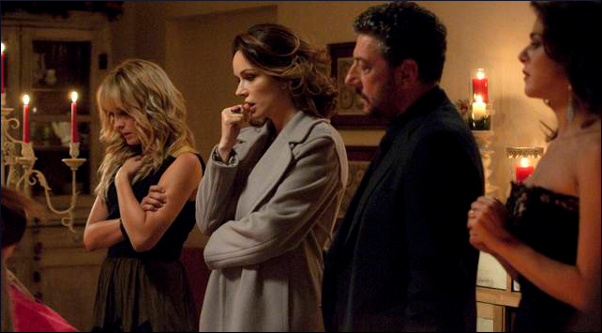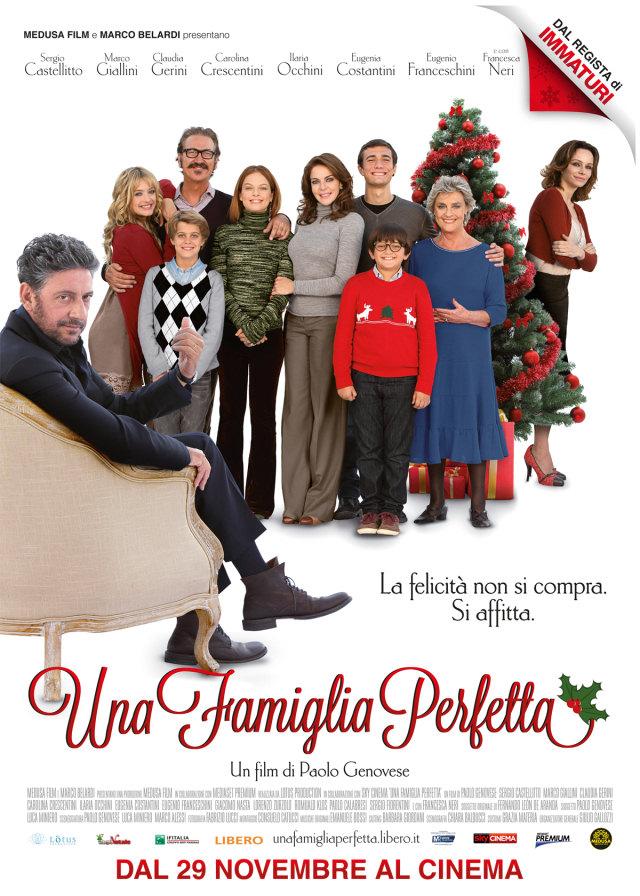Una Famiglia Perfetta is a 2012 movie by Paolo Genovese, starring Sergio Castellitto, Claudia Gerini, Francesca Neri, and Ilaria Occhini. It is an atypical Italian Christmas comedy. The main topic is loneliness, or rather, the choices one makes that lead to a solitary life, far from the typical concepts of family, friendship, and sociality.
"This is a quite pleasant and enjoyable movie: a good, light choice for Christmas."
The protagonist is a rich and extravagant man, named Leone (played by Castellitto), who lives by himself and who decides to hire a troupe of actors to act out the part of his family during Christmas Eve. Almost all the events in the film revolve around Leone’s big country house in Todi, in the Umbria region, with his imaginary wife, brother, mother, and four young sons, all of them actors delivering lines from a script. At certain points, real life and fiction merge together, generating ambiguities and misunderstandings. New complications arise with the arrival of another woman, played by Neri, who Leone met in the street. She is unaware of what is happening in this “weird” family, further estranging the atmosphere.

The plot recalls parts of other films, such as Gabriele Salvatores’s Happy Family, and some books, like Pirandello’s Sei personaggi in cerca di autore, but it has some novel implications. The dialogue is quite comprehensible to non-Italian spectators, because all the protagonists speak in perfect Italian, without dialectal terms. Only sometimes is there a marked Umbrian accent, very similar to Roman, with some inflections: for instance, the reduction of double consonants to single letters (“davero” instead of “davvero”) or the alteration of ending vowels (“de” instead of “di”). The language is pretty dynamic. We hear a few common expressions, like “farti beccare,” used when someone is caught doing something especially unlikable, or “e sticazzi,” which is pronounced with a kind of interrogative tone and is used all over Italy by youths to express non-interest in something, like “I don’t care,” but through a unique and laconic word. Other typical expressions and words include “arrangiati,” employed to tell someone to manage by him or herself in order to do something, or “manco,” meaning “neppure” or “neither,” used in especially impolite contexts. This is a quite pleasant and enjoyable movie: a good, light choice for Christmas.




